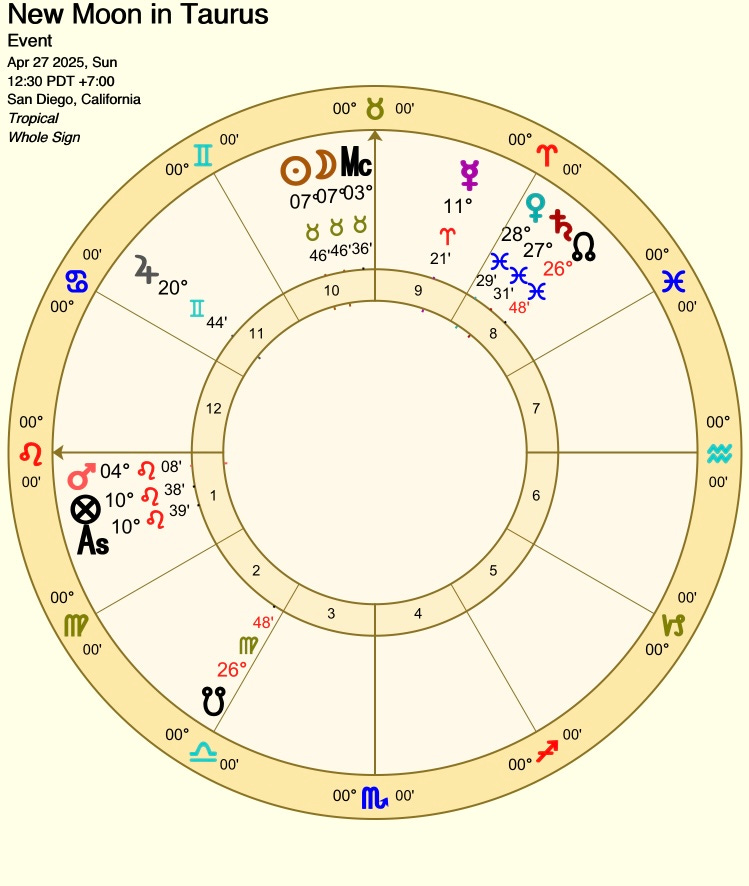It’s giving “I’ve got the right to sing the blues…”
It was 12:30 PST, April 27th, and there was a New Moon in Taurus
Hey y’all,
“The Good, The Bad, and Everything In-between” is a lunar horoscope of the monthly variety. Why lunar? Well, simply put, the Moon is for the people. And, most importantly, the Moon is for the streets. If you’re looking for musings ridden with purple language and astrological DIY, look here. My goal is to be as unclear and unruly as possible. The world’s already so . . . meh. Maybe this will help? Today’s forecast is giving “I’ve got a right to sing the blues.”
Sincerely,
E.Y.
The Good: Venus, the Landlady of Taurus, manages her daytime property from Pisces. She just survived a dicey run-in with her mean-mugging housemate Saturn. Shaken but enthused, the Evening Star nourishes the Sun and Moon with sweet waters and wise words. They take her sustenance in turn and build.
The Bad: Hollering at them from three doors down, Mars starts a shouting match with the Sun and Moon. They are startled but certainly not intimidated. Frankly he’s a nosy neighbor that’s all pomp and no circumstance. Maybe, just maybe, he’s affronted and offended by the Moon’s luxury. Regardless of his enraged reasoning, the young lunation keeps on keeping on.
Everything Else In-between: Imani Perry’s Black in Blues: How Color Tells the Story of My People has become my latest procrastination read. “Our Blue Interior,” the first essay in the collection, interrelates black folks, the blues, and the color blue. Whether physical or emotional, mental or spiritual, political or sexual, black suffering begets blue articulation. Tunes like “Strange Fruit,” “I’ll Be Seeing You,” and “I’ve Got the Right to Sing the Blues” ring in response to the daunting circumstances that backlight African-American life. “In the successive waves of reckonings, through the steady meanness of life we,” Perry writes, “have relied on a blues-soaked sensibility: sustaining, being, and becoming ourselves.” Black music ensures black becoming even when the becoming is sad. Later, in the essay “Blue Goes Down,” Perry retells the folklore regarding the holy woman Asi imbibing the indigo colored sky. Her wanting and taking usher in a drunkenness that leads to the death of her baby. Grief-stricken, she reaches to the sky for comfort but cannot palm its softness. The lofty gods abandoned her bringing the heavens with them. “To hold blue now,” they sang in unison, “sinew and mind must be exerted.” Damn. Asi, worn out by routine and responsibility, turned skyward crossing the wire-thin line between want and greed, yearning and obsession. Perry notes that such boundary crossing leads to colorful ruination. (How else do you think Africans became Black which is to say blue?) For what it’s worth, sky-eating was reserved for demonstrating love, commitment, and reverence to the divine. Of the tale’s personal significance, Perry writes: “ . . . it helps me remember there was a time before Black, but not before blues.” I think that’s why Mars is mad at the Sun and Moon. They forgot.





